Grandmaster Ian Nepomniachtchi clinched victory at the Candidates Tournament by securing first place with a round to spare
Following a draw in round 13 game against Hungarian Grandmaster Richard Rapport, Nepomniachtchi is on 9/13, a point and a half ahead of the rest of the field. This is his second consecutive victory in the eight-player Candidates.
In the post-game interview, when asked how he is feeling now, Nepomniachtchi responded: ‘The traditional answer is – I don’t know… In this tournament, I was trying more to play chess than playing for a win. That is important… Another important factor is that I never had a six-hour game here. I was lucky enough not to play for too long’, said Nepomniachtchi.
The 31-year-old Russian has taken an early lead in the tournament and is the only player not to lose a single game.
American Hikaru Nakamura is currently in clear second place with 7.5 points, having won today against Polish GM Jan-Krzysztof Duda. In the final – 14th round – he will be up against China’s Ding Liren, who is on seven points, in a direct duel for second place.
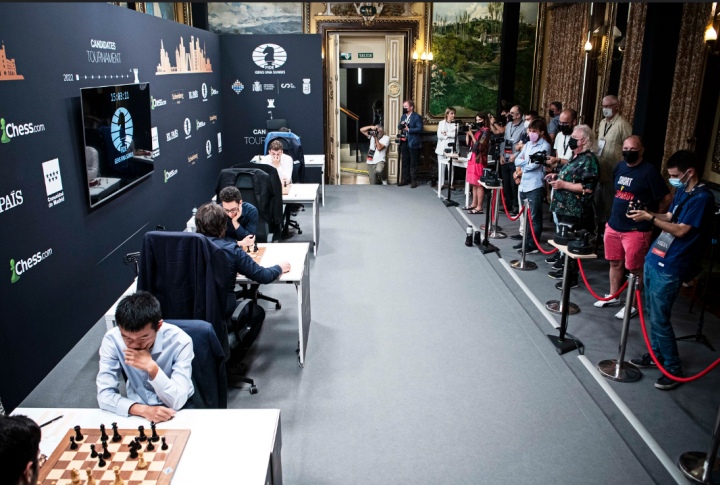
The race for second place has become ever more important since five-times world champion Magnus Carlsen has made several suggestions he might not be willing to defend his title. If Carlsen decides not to play in the match which is due to take place next year, he will be replaced by the runner-up in the Candidates.
Summary of the games of Round 13
Ian Nepomniachtchi was White against Richard Rapport, who opted for a sharp line in the Richter-Rauzer variation of the Sicilian. However, Nepomniachtchi was looking to calm the game, and he forced exchanges, making things simpler on the board. Rapport, at one point, started advancing his king towards the middle, but he steered clear of dangerous exhibitions such as those in round seven against Nepo, when he refused a draw offer and ended up losing. In an even position, a draw was agreed on move 34 following threefold repetition.
It is all Nepomniachtchi needed to claim first place, with one more round to go.

In light of the debate about whether the reigning world champion Magnus Carlsen will defend his title or not, an even more significant question mark grows on who the winner of the Candidates will be facing. When asked who he wants to play in the world championship match, Nepomniachtchi said: ‘Literally, I don’t care. But, of course, it would be quite challenging to play Magnus again.’
Ian Nepomniachtchi has been the leader from the very start of the tournament and is the only player in the field not to suffer a defeat in 13 rounds played. He will be hoping to maintain this in the final game, in round 14, and avoid the repeat of 2020/21 Candidates in Yekaterinburg, where he also won with a round to spare but then lost the last game.
While the main story of the day is Nepomniachtchi confirming his victory in the Candidates, the most gripping question is – who will be second? This question has dominated the latter part of the event ever since the prospects of Nepomniachchi’s victory became almost certain.
The main candidates are Hikaru Nakamura and Ding Liren who entered today’s round with 6.5 points.

The most exciting game of the day was between Hikaru Nakamura and Jan-Krzysztof Duda. The young player from Poland opted for a Najdorf Sicilian – entering a sharp line where both sides needed to calculate a lot. In a game full of ups and downs for both sides, Nakamura seemed to have overstretched himself, sacrificing a pawn and giving Black several good chances in the early middlegame. However, as in the previous games, Duda failed the strength and energy to convert the advantage untimely pushed in the centre and gradually gave back the initiative to White. In a tactical position, Nakamura managed to outplay his opponent in the second part of the game, and after Black’s serious mistake on move 37, he ended up completely winning. With 7.5/13, Nakamura is alone in second place.
Ding was black against Alireza Firouzja, who opted for a calmer line – with the Four Knight’s Scotch. For the first ten moves, the two followed the same line as in the round eight game between Nepomniachtci and Ding, which ended in a draw. It seemed that the two were heading for a speedy draw following quick play and exchanges. However, in the endgame, Ding decided to give up a pawn on the h-file and spice up the position. Firouzja countered Black’s advances well and then found a bishop sacrifice which activated his rook, enabling it to give perpetual checks. Ding was willing to take a risk today and was pushing, but it didn’t go, and he didn’t overforce it. With 7/13, Ding stands a solid chance to take second place. As for Firouzja, anything but a defeat is good news at this stage.
In the last round, Hikaru Nakamura will be facing Ding Lireng in a direct duel for second place.

In today’s game, Fabiano Caruana was playing with black pieces against the uneasy Teimour Radjabov. In the Catalan, Caruana surprised his opponent in the opening, choosing a rarer line and sacrificing a pawn. Black did get some initiative, but Radjabov quickly simplified and transitioned to an even endgame where the two quickly agreed on a draw. Both Caruana and Radjabov are on 6.5/13 and don’t have chances for second place.
Here follows a closer look at the games from round thirteen of the Candidates.
Ian Nepomniachtchi vs Richard Rapport: Confidence and calm
Rapport opted for a sharp line, refusing to play for a draw and hand Nepomniachtchi the victory. The opponents played a long theoretical line of Richter-Rauzer attack in the Sicilian that has been tested in many games before.
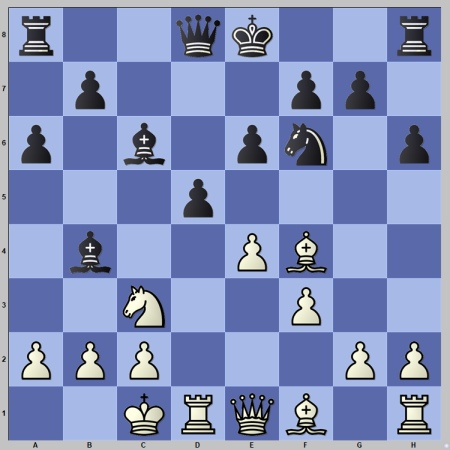
White is pressuring Black down the d- and e-file, while, in response, black’s bishop on b4 is tying the white queen and preventing White from playing on the d5 square.
With 13.a3 Nepomniachtchi immediately forced Black to declare his intentions. Rapport took on c3 (13…Ba5 is a more popular continuation) and then castled. After 13…Bxc3 14.Qxc3 0-0 15.Be5 Rc8, Nepomniachtchi was looking to ease the pressure on the board and simplify the position. With this in mind, he refrained from aggressive and objectively strong 16.g4 and proceeded to take on f6 and exchange heavy pieces: 16.Bxf6 Qxf6 17.gxf6 18.exd5 Bxd5 19.Rd4
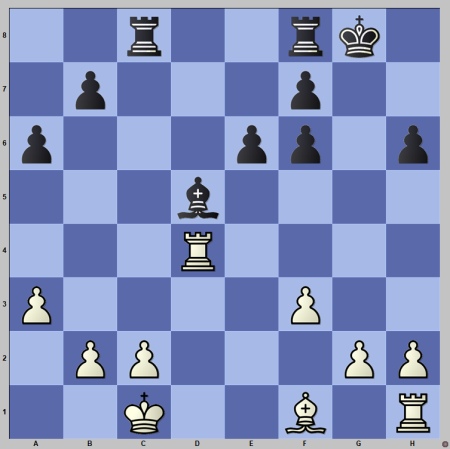
Rapport opted for 19…f5 – the first original move in the game – and after 20.Bd3 Bc6 21.Rd1, the position was level. Several moves down the road, the opponents traded rooks and split a point on the move 32.
After three hours of play, Ian Nepomniachtchi achieved a repeat of Yekaterinburg: With a round to spare, he won the Candidates tournament. In this game, as in all previous ones, he has demonstrated two things: confidence and calm, both on and off the board.
Hikaru Nakamura vs Jan-Krzysztof Duda: The exchange of inaccuracies
In the Najdorf variation of the Sicilian, Nakamura played the system with 7.Nf3, which brought him success in the round nine game against Firouzja.
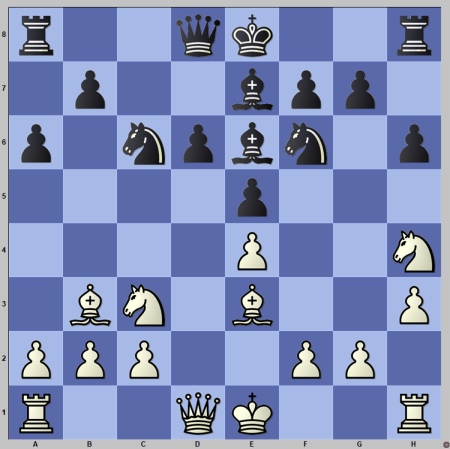
After Nakamura introduced a novelty 11.Nh4, Duda spent over 13 minutes thinking and played 13…Na5. It was not an optimal reaction as after 14.Bxe6 fxe6 15.Ng6 Rg8 White prevented Black’s castling short.
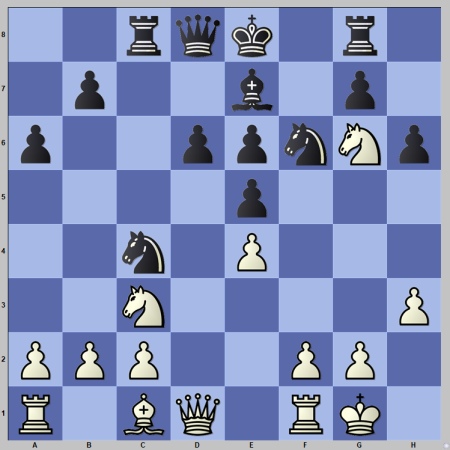
Here Nakamura played natural 16.h4 with the idea of supporting the g6-knight, after which his advantage immediately dwindled. Better was 16.b3. As played, Black got some respite but did not equalize completely.
Duda tried to counter White’s advances by getting his knight from c4 back to f8 to support the king’s defence, and also aligned his queen and rook on the c-file, while Nakamura executed an excellent manoeuvre Nc3-d1-e3 advanced his pawn to c4 and grabbed the initiative again.
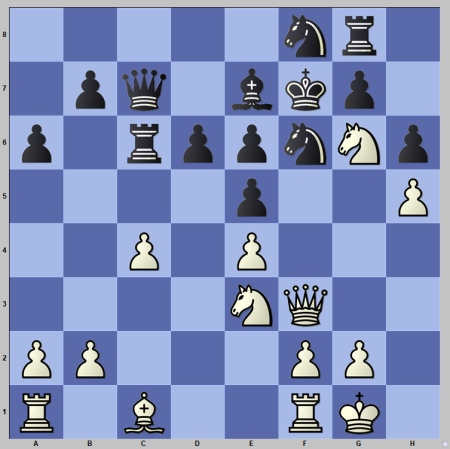
Here, instead of 22.Nxe7 followed by moving his bishop to a3 and doubling the rooks along the d-file, Nakamura played 22.Nh4?!. Most likely, he missed the Nf8-h7-g5 manoeuvre by Black. Indeed after 22…Nh7 23.b3 Ng5 25.Qe2 Nxe4, Duda snatched an important pawn in the centre and emerged slightly better.
Both sides played steadily until Nakamura made another error.
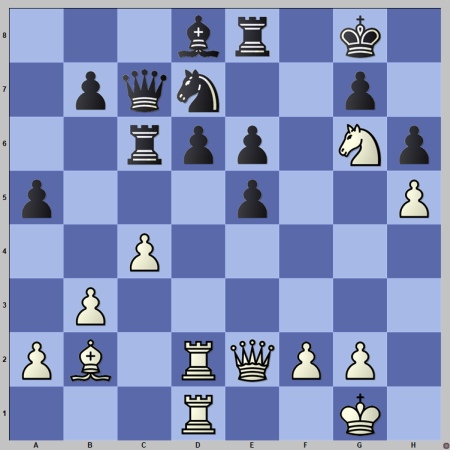
White played 31.Rfd1. Instead, 31.Ba3, pinning the d6 pawn and aiming at the a3-f8 diagonal was better for White. After 31…Bg5! Black got the upper hand. However, Duda surrendered the advantage within the next two moves.
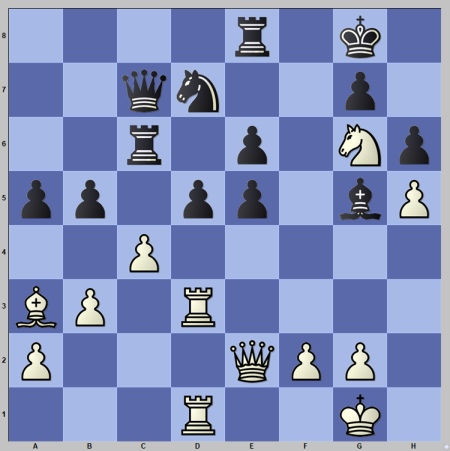
Instead of playing 33…b4 to close the White’s bishop, Duda prematurely opened the centre with 33…d5 and allowed Nakamura space for tactics.
34.cxd5 Rc2 35.Bd6 – here comes the price for not closing off White’s bishop with b4 earlier. The game continued 36…Rxe2 37.Bxc7 Nc5 37.d6.
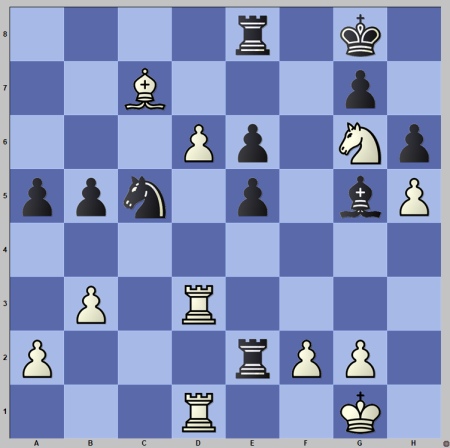
It is the last critical position. Nakamura pushed his d-pawn too quickly. He should have moved rook from d3 instead with a roughly equal position. Duda, however, quickly responded with 37…Nd7? which was a decisive mistake. The Polish GM should have gone for 37…Nxd3 38.d7 Ra8 39.Rxd3 Rxa2 40.d8Q Bxd8 41.Bxd8 in which Black is fine, to say the least.
In the following moves, Nakamura increased his advantage by skillfully avoiding attacks from Black while simultaneously eliminating obstacles for the promotion of his d-pawn.
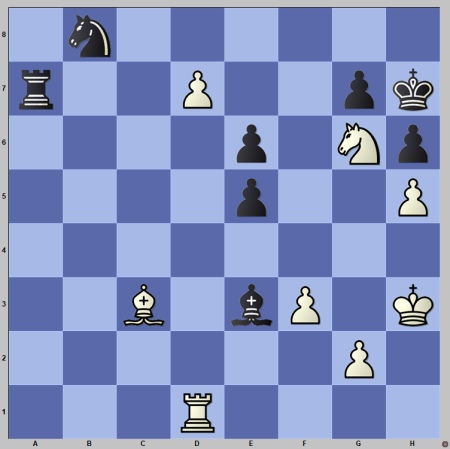
It is the final position. The only way for Black to stop the d-pawn promoting was to capture on d7, which would lead to him ending a piece down: 52…Nxd7 53.Rxd7 Rxd7 54.Nf8+, collecting the rook on d7.
A critical victory for Nakamura, giving him the best shot at second place.
Alireza Firouzja vs Ding Liren: All you can do is try
Firouzja was playing not to lose. He opted for the Four knight’s Scotch, a solid and calm line.

The first ten moves of the game were the same as in the round eight encounter between Nepo and Ding which ended in a draw. Instead of 10.Qf3, which Nepo played, Firouzja opted for 10.Bg5.
The game progressed very quickly: both sides developed, secured their king and then proceeded to exchange pieces, ending with two rooks and an opposite-coloured bishop. Black’s excellent piece activity compensated for the deficiencies in the pawn structure.
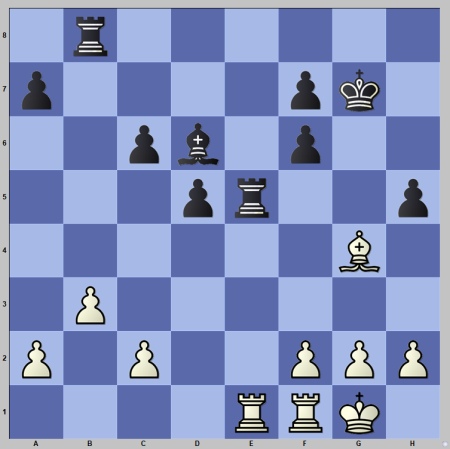
Ding here decided to sacrifice a pawn, something you usually don’t do near the endgame. Firouzja yielded to temptation, and after 21.Rxe5 Rxe5 22.Bxh5 Ding played 22…f5, charging across the centre.
Despite being a pawn down, it seemed that Black had a clear plan of building up pressure while Firouzja was on the defensive. The game, which looked even and heading straight for a draw, suddenly livened up.
Firouzja advanced his kingside pawns and trapped the Black’s bishop on h4.
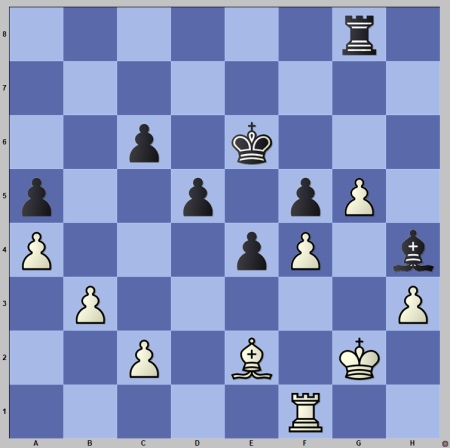
On the other hand, this ‘prisoner’ chained White’s king to the kingside as his f4-pawn needed protection. Here Ding started looking for his chances on the queenside and then proceeded with a pawn advance in the centre.
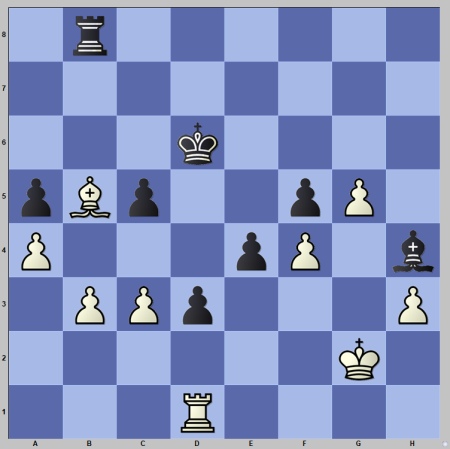
Firouzja immediately sacrificed his bishop 35.Bxd3! – the only move that allows White to hold his ground. Ding went for Black’s weak pawns on the fifth rank, while Ding took on b3.
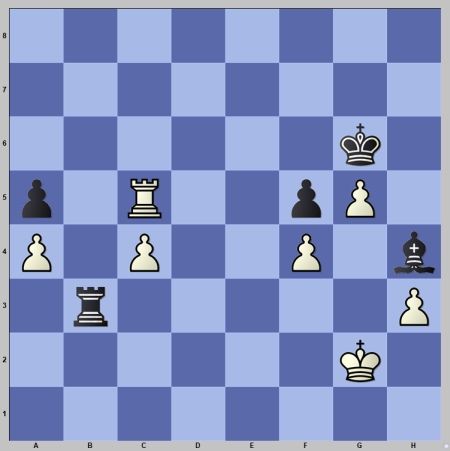
Ding’s king was cut off, with White’s g- and h-pawn preventing any movement on the kingside. After a perpetual check, a draw was agreed.
The World No. 2 tried what he could, but it didn’t work. Still, his appetite for victory and sense for critical moments came to the fore, and he will deservedly be fighting for second place against Nakamura in the final round.
Teimour Radjabov vs Fabiano Caruana: Calling the whole thing off
In the Catalan, Caruana essayed a rare line in which, at first glance, White got an edge.
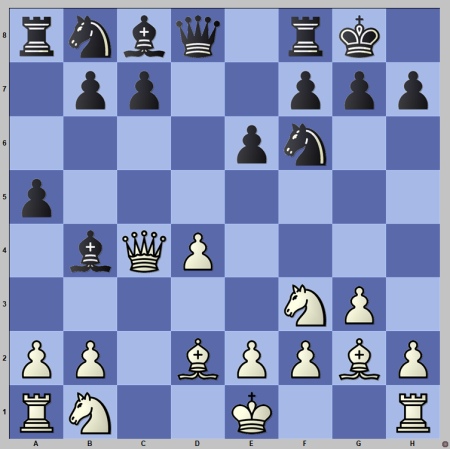
Here Caruana played 8…b6 instead of Bxd2 or Bd6. Radjabov responded 9.Bxb4 and after 9…Ba6 10.Qb3 axb4 11.Qxb4, White got an extra pawn for which Black supposedly had no compensation.
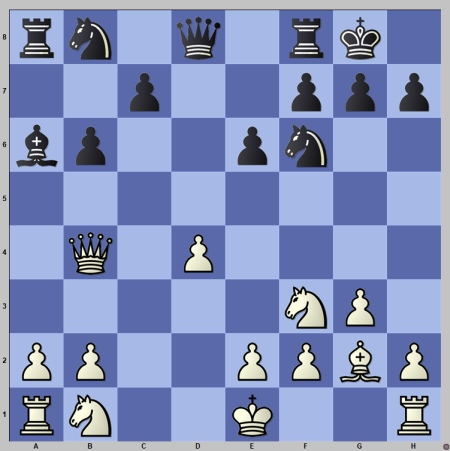
However, after 11…c5! 12.dxc5 – taking another pawn – and 12…Nc6, White had an option to take the third pawn on the queenside. Radjabov reasoned it would be too dangerous (exposing his queen and uncastled king to an attack) and opted for a more reserved 13.Qd2.
A pawn exchange on the left flank was followed by trading queens, after which White was a pawn up, but Black got a sufficient counterplay in the form of very active pieces. This line, up to move 15, was tested in a game of two lower-rated played back in 2019. There is little doubt that Caruana analyzed it in-depth, preparing for the event.
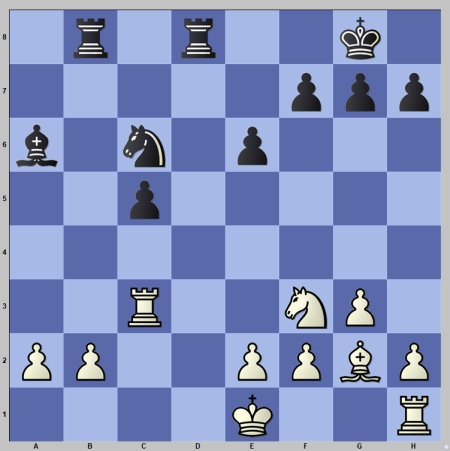
Despite being a pawn up, it wasn’t easy for White. He still hadn’t castled, and his pieces were not all activated to their potential. Radjabov was also getting weaker on time. Black, on the other hand, secured his king, had more active pieces and his rooks were unopposed down the a- and d- files. In any pawn exchange, there was a danger of black rooks getting down to the second rank.
Radjabov opted to simplify and not take risks.
After 18.b3 Nb4 19.Nd2 Nxa2 20.Rc2 Nb4 21.Rxc4 Rbc8 22.Rxc8 Rxc8 23.Nc4 Bxc4 24.bxc4 Rc4 25.Kd2 the position was dead even.
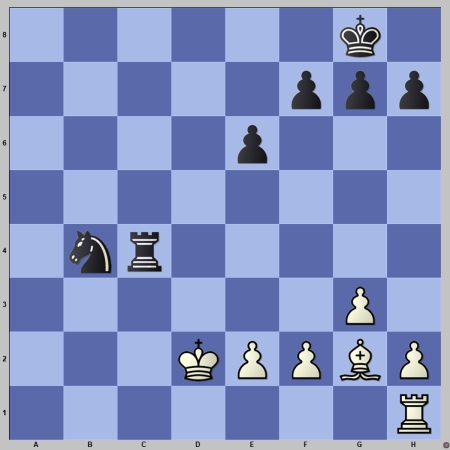
The two soon decided to call it a day. This was the first game of the round to finish. After the initial sparks, it seems that neither side was willing to push too hard. Both players are on 6.5 and with no chance for second place.
The final, fourteenth round of the Candidates starts on Monday the 4th of July at 3 PM CEST at the Palacio de Santona in Madrid.
The pairings of round fourteen are as follows:
Richard Rapport vs Teimour Radjabov
Fabiano Caruana vs Alireza Firouzja
Ding Liren vs Hikaru Nakamura
Jan-Krzysztof Duda vs Ian Nepomniachtchi
For more information please visit: https://candidates.fide.com/
Text: Milan Dinic
Photos: FIDE / Stev Bonhage and Maria Emelianova / Chess.com
2022 Candidates Tournament Partners:

